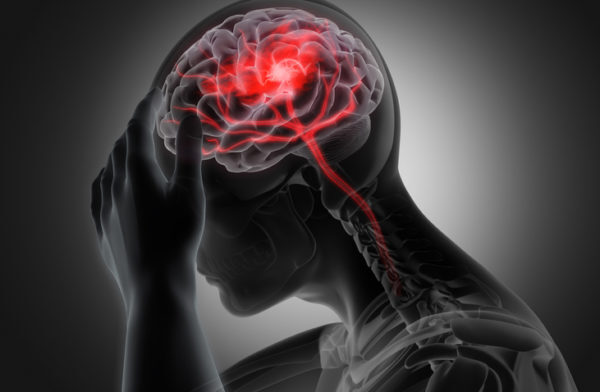
A Maine brain injury lawyer breaks down the common causes, symptoms, and treatments of TBI
Traumatic brain injury (TBI) is a serious medical condition that results from a violent blow or jolt to the head or body, causing damage to the victim's brain. TBIs are often caused by accidents, such as car crashes, falls, and workplace accidents. They can also occur as a result of sports injuries and assaults.
Brain injuries can have long-lasting and severe physical, cognitive, and emotional effects on individuals, making them a leading cause of disability and death worldwide. According to the Centers for Disease Control and Prevention (CDC), TBIs contribute to roughly 30% of all injury-related deaths in the United States.
If you or a loved one has suffered a traumatic brain injury due to an accident or incident caused by the negligence or misconduct of another person or entity in Maine, our brain injury attorneys can help you navigate the legal process and pursue compensation for your injuries and losses. To learn more about how we can help you, contact us today to review your legal rights and options.
What are the most common types of TBI?
The human brain is an incredibly complex organ responsible for controlling and coordinating all bodily functions. However, when subjected to traumatic forces, it can sustain various types of injuries that can have devastating consequences for the victim and their loved ones.
Depending on the forces involved, one, many, or all of the brain's functional areas may be affected, leading to a range of symptoms. Here are some of the most common types of TBIs:
Concussion
A concussion is a type of brain injury caused by a sudden blow or jolt to the head. This can result in temporary loss of consciousness, confusion, memory loss, and other symptoms. Motor vehicle accidents and falls are common causes of concussions. Concussions are technically classified as "mild" traumatic brain injuries (mTBI), but that's easy to say if you're not the one with the injury.
Second Impact Syndrome
Second impact syndrome is a potentially life-threatening medical condition that occurs when a person sustains a second concussion before the first concussion has healed. This can lead to brain swelling and catastrophic neurological damage.
Contusion
A brain contusion is a bruise on the brain caused by a direct blow to the head. It can result in swelling and bleeding in the brain, leading to symptoms such as headaches, dizziness, and confusion.
Coup-Contrecoup
This type of brain injury occurs when the brain is jolted back and forth inside the skull, causing two points of impact. The first impact is at the site of the blow, while the second impact is on the opposite side of the brain. Car accidents in which the head is violently jerked forward and then backward often result in this type of brain injury
Anoxic brain injury
This type of brain injury occurs when the brain is deprived of oxygen. Anoxic brain injury can cause permanent brain damage, including cognitive, motor, and sensory deficits. An example of an accident that could cause anoxic brain injury is near-drowning or suffocation.
Diffuse Axonal
A diffuse axonal injury occurs when the brain is twisted or rotated inside the skull, causing damage to the axons that connect brain cells. This can result in widespread brain damage, leading to coma or death.
Hypoxic brain injury
This type of brain injury occurs when the brain doesn't receive enough oxygen, causing brain cells to die. It can result in permanent brain damage, including cognitive, motor, and sensory deficits.
Locked-in Syndrome
Locked-in syndrome is a rare type of traumatic brain injury that results in complete paralysis of all voluntary muscles in the body, except for the eyes. It can occur when the brainstem, which controls basic life-support functions, is damaged.
Skull fracture
A skull fracture is a break in the skull bone. It can occur when the head is struck with significant force, causing a crack or a break in the bone.
Penetrating Brain Injury (open head injury)
This type of brain injury occurs when an object penetrates the skull and damages the brain tissue. It can result in permanent brain damage, including cognitive, motor, and sensory deficits. Gunshot wounds or stabbings often cause penetrating brain injuries, but they can also happen in motor vehicle accidents and other incidents.
How do you know if you've suffered a TBI?
TBIs can range from mild to severe and can cause various physical, cognitive, and emotional symptoms.
Symptoms of Mild TBI
- Brief loss of consciousness
- Confusion or disorientation
- Headache
- Dizziness or loss of balance
- Nausea or vomiting
- Sensitivity to light or sound
- Blurred vision or ringing in the ears
- Fatigue or lethargy
- Difficulty with concentration or memory
- Mood changes or irritability
Symptoms of Moderate TBI
- Loss of consciousness for several minutes to hours
- Persistent headache or migraine
- Seizures or convulsions
- Numbness or weakness in the extremities
- Slurred speech or difficulty speaking
- Loss of coordination or balance
- Profound confusion or disorientation
- Agitation or combativeness
- Unusual behavior or personality changes
Symptoms of Severe TBI
- Prolonged loss of consciousness or coma
- Profound confusion or disorientation
- Inability to awaken from sleep
- Severe or worsening headache
- Convulsions or seizures
- Clear fluids draining from the nose or ears
- Dilated pupils or unequal pupils
- Numbness or weakness in the extremities
- Persistent vomiting or nausea
- Unconsciousness or persistent vegetative state
To diagnose a TBI, a doctor will perform a physical and neurological examination, evaluate the patient's medical history, and may use imaging tests such as a CT scan or MRI.
The doctor will look for cognitive symptoms of brain injury, such as loss of consciousness, confusion, and memory loss, as well as physical symptoms, such as headache, nausea, and dizziness.
The doctor may also conduct cognitive and neuropsychological tests to assess the patient's memory, attention, and other cognitive functions. Sometimes, the doctor may perform additional tests, such as blood tests or electroencephalography (EEG), to evaluate brain function.
Talk to a Maine brain injury attorney today
If you or a loved one has suffered a traumatic brain injury in Maine, it is essential to consult with an experienced brain injury lawyer as soon as possible. The cost of treatment for a TBI can be substantial, and dealing with insurance companies can be overwhelming.
At The Law Offices of Joe Bornstein, our highly skilled legal team has been fighting for injured Mainers since 1974. Our law firm can help you navigate the legal process, protect your rights, and fight for the financial compensation you deserve. Don't wait to get the help you need. Talk to a Maine brain injury attorney today to learn about your legal options and get started on the path to recovery. Schedule your free case evaluation today.



